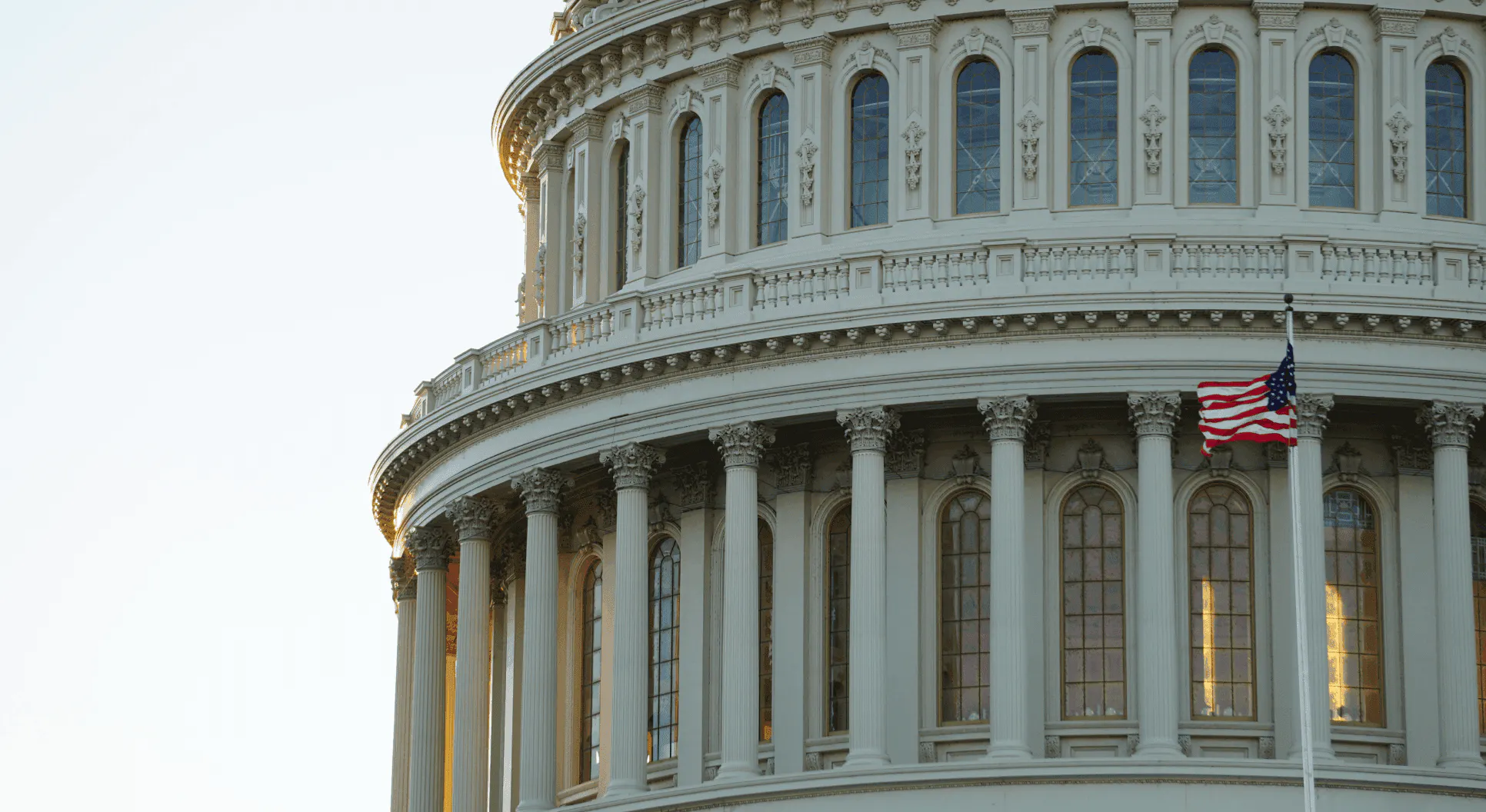Unraveling the CARES Act: Shaping the Future of Student Loan Repayment
How does the CARES Act change things for student loans? Let's explore the benefits it brings and the help employers can provide

Key Takeaways
- The CARES Act provides relief for student loan borrowers by suspending payments and setting a 0% interest rate until August 2023.
- "Administrative forbearance" in the CARES Act pauses student loan payments to help borrowers during the economic crisis.
- The CARES Act's Employer Student Loan Repayment allows employers to contribute tax-free to their employees' student loans annually until 2025.
- Despite a few limitations, the Employer Student Loan Repayment program benefits both employers and employees by easing financial burdens, retaining talent, and offering tax benefits.
Understanding the CARES Act: What is it?
Have you heard about the CARES Act in the news lately? Its full name is the Coronavirus Aid, Relief, and Economic Security Act, and it became a law on March 27, 2020. The goal of this law is to help people in America who are having money problems because of COVID-19. The CARES Act gives support to small businesses, families, workers, students, and more.
It also helps people who work for themselves, like freelancers, and small businesses, schools, and people who rent their homes. This help comes in different ways, like delaying rent payments, giving out grants, and offering loans to keep businesses going during lockdowns.
For students and people who just finished college, the CARES Act set aside $2.2 trillion for things like tax cuts, stimulus checks, and better unemployment benefits. It also put a pause on student loan interest and payments. About $14 billion of this money went to the Higher Education Emergency Relief Fund (HEERF).
So, How Does It Help Federal Student Loan Holders?
One big part of the CARES Act is that it made the U.S. Department of Education stop collecting payments on some federal student loans and set the interest rate at 0%. This is still happening, until payments resume in September 2023. During this time, people don't have to make loan payments, and their loan amount won't go up because there's no interest.
What's "Administrative Forbearance" and How Does It Affect Student Loan Payments?
"Administrative forbearance" is just another way to say the CARES Act is pausing student loan payments. This has helped a lot of people because the whole world's economy has been hurt by COVID-19. Loan companies have been using any payments they get to pay off the main amount of debt and any interest or fees from before March 13, 2020.
Now, this doesn't work for private student loans. But some companies that give these loans are trying to help by letting students take a break from payments or pay less during the pandemic.
When Will People Have to Start Paying Student Loans Again?
The break on loan payments has been extended many times. It was first going to end on Sep. 30, 2020, but then it was pushed back to Jan. 31, 2021. President Biden made it last even longer, until Sep. 30, 2021. Since that time, it has been extended again, and the last day of the pause is now in August 2023.
What Happens When the CARES Act Forbearance Is Over?
When it ends, people will have to start making monthly payments again. The interest rates will also go back to what they were before the CARES Act. So, the 0% interest rate will stop, and the loans will go back to the old rates from when you first borrowed the money for school.
Make sure you're ready for this. You'll get a bill about three weeks before you have to start paying again. For more information about when loan payments will start up, go to studentaid.gov.
The Student Loan Help from Employers: What Is It?
Here's another special part of the CARES Act called the Employer Student Loan Repayment, or ESLR for short. This means that employers can give up to $5,250 each year to their workers to help pay off their student loans. This part of the $2 trillion CARES Act is explained in Section 2206.
In 2021, the United States Congress decided to make this even better by saying it will last until December 2025. This might mean that the ESLR program is here to stay!
The CARES Act lays out some rules for how the ESLR works:
- Both the worker and the company that gives the money don't have to pay taxes on it (CARES Act Section 2206(b)).
- The payment can be sent to either the worker or the lender (Sec. 2206[a]).
- Section 127(c) explains that the money can't be given to people who make a lot of money, people that make more then $125,000 a year and bosses can't get more than 5% of the total amount being given to workers. These rules make the program fair for everyone.
The good news is, this means the part of the money employers give, up to $5,250, is tax-free every year for both the employer and the employee.
The Good Things About Employer Student Loan Repayment
This program that employers can use to help pay off their workers' student loans is great in a lot of ways. It can be a big help for people who want to pay off their loans faster. It can also make working at certain companies even more appealing.
And it's not just great for workers. Companies like it too, because they can attract really good workers without it costing them more. That's because what they pay towards workers' student loans is tax-free and can be deducted from their taxes.
Tax-Free Employer Student Loan Repayment Under CARES Act
The CARES Act Section 127 allows employers to make direct payments to employees under the ESLR benefit. The payment can be made to the loan servicer, increasing its attractiveness to a broader employer base.
The funds contributed by the employer can be directed either towards the employee's student loans. However, any amount above the $5,250 annual cap is taxable for the employee.
Rules around a Section 127 plan
- To start, be aware that a 127 plan can't be more beneficial to employees who get paid the most. The program can't be used for workers who earn more than $125,000 per year
- Owners who hold more than 5% of the company can't get over 5% of the total yearly benefits.
- This plan doesn't let employees pick between education support and other benefits or pay, whether they're cash or non-cash.
- If you're eligible, you should be informed about the 127 plan clearly.
- From all employers, an employee can't get more than $5,250 each year.
- Lastly, only true education expenses qualify for tax-free payments.
Understanding your Employer's Role in Student Loan Repayments
Did you know that employers can assist in paying off student loans? Thanks to some recent changes in laws, this is now possible and can significantly ease the financial burden on graduates.
As part of the CARES Act, along with Section 127, employers now have the power to contribute as much as $5,250 each year tax-free towards an employee's student loans. This opportunity applies until January 2025. It's worth keeping in mind though that this does not apply to Parent Plus or Direct PLUS loans, these contributions would not be tax-free. Don't worry if this sounds complicated, services like Paidly can assist employers in providing these additional payments to your student loans.
You may be asking yourself - why is this a big deal? Consider this, on average a graduate has to pay around $460 every month towards their student loans, as per the Education Data Initiative. Furthermore, a typical borrower can end up spending up to 20 years to completely pay off their educational debts. When you consider the 63.9 million borrowers under 61 owing a whopping total of $1.4 trillion in federal student loans, as per the Federal Student Loan Portfolio, the scale of the problem becomes clear.
So how does the CARES Act help? Well, to benefit from the act, borrowers have to be up-to-date with their loan repayments. Now, the cool part is that the contributions made by employers are added to your monthly repayments, meaning you can pay off your loans even faster! Any contributions from employers go directly to reducing the overall loan, potentially saving the borrower a substantial amount of money over time. For employers, this minimal investment results in a happier and more productive workforce.
But the benefits don't stop at the employees. Business owners and managers too can gain from the CARES Act. Here's how:
- By boosting employee productivity and overall satisfaction.
- By increasing employee loyalty and happiness at the workplace.
- By setting themselves apart when looking for new hires and positioning the organization as an employer that truly cares about its employees.
- And, this is a non-taxable payroll expense for the business, but still, an expense that can reduce overall income taxes for the business.
For these reasons, it's worth it for companies to consider offering this as a benefit. Equally, employees should let their employers know about this opportunity if it's not already in place.
If you feel this is something you'd like to explore further, or if you would like to help your employer understand better, the team at Paidly can help. After all, the longer you wait, the more student debt you collect. An Employer Student Loan Repayment (ESLR) program can help you and your employer save money both now and in the future.
Team Paidly
Paidly is a Student Loan Repayment Benefit platform. Leveraging over a decade and a half of Fintech, student loan origination, and refinancing experience. Paidly specializes in creating custom student loan repayment benefit plans, designed specifically to allow employers to pay directly towards their employees' student loans. Paidly's system requires no integration and enhances talent attraction and employee retention.
Join our newsletter
Don't miss any more news and subscribe to our newsletter today.
The information provided is of a general nature and an educational resource. It is not intended to provide advice or address the situation of any particular individual or entity. Any recipient shall be responsible for the use to which it puts this document. Paidly shall have no liability for the information provided. While care has been taken to produce this document, Paidly does not warrant, represent or guarantee the completeness, accuracy, adequacy, or fitness with respect to the information contained in this document. The information provided does not reflect new circumstances, or additional regulatory and legal changes. The issues addressed may have legal, financial, and health implications, and we recommend you speak to your legal, financial, and health advisors before acting on any of the information provided.
You may also like

A Meaningful Gift for the Ones Who Matter Most
Gifting financial freedom is more than a gesture - it’s an investment in those you care about. Help your loved ones thrive by supporting their education this holiday season.

The Gift That Keeps On Giving: 529 Year-End Bonuses
Spread your year-end bonus further this season by paying directly toward employees’ 529 educational savings plans.

Why You’ll Want to Put Year-End Bonuses Toward Student Loans
Putting employee year-end bonuses directly toward student loans is the perfect way to strengthen your workforce this holiday season.

